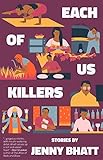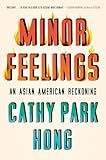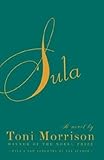In the waning hours of 2019, I, forever a Type B person attempting Type A person drag, resolved to read a book a week in 2020. Made a spreadsheet, an honest-to-god Spreadsheet, to track my progress. This was a dumbass move and I do not recommend it. Books have been a lifelong source of pleasure and travel; to sully that with quantifiers in order to feel closer to well-read–whatever that is–was less than advisable any year. In 2020, it was a malpractice.
The spreadsheet was abandoned by mid-February, and by March I was reading lockdown news out of Italy and Hubei province and building a small stockpile of non-perishables in the cabinet above my fridge. By May I was clenching my teeth so hard when I slept that it eventually cracked a filling. I did not read fifty-two books this year (lmao). But the ones I did–they opened me up, allowed me to step out of annus horribilis, sparked something in my decaying brain.

 This year Weike Wang’s Chemistry, C Pam Zhang’s How Much of These Hills is Gold, Lila Savage’s Say Say Say, Sayaka Murata’s Convenience Store Woman, Katie Kitamura’s A Separation, and Raven Leilani’s Luster, all brought me into new and beloved worlds encased in the consciousness of their glorious, expansive female narrators. Whether I was wandering Greece in Kitamura’s stylish, haunting thriller of romantic abandonment, or feeling the punch of Savage’s restrained, near-spiritual telling of care work in the Midwest, or alternating between aching for and cheering on Leilani’s dirtbag queen, I was falling in love, and fast. The craft of each of these stunning novels creates a deeply pleasurable, propulsive reading experience, and in a season of pain I was grateful for this affordance, to not have to summon virtue or willpower to turn the page.
This year Weike Wang’s Chemistry, C Pam Zhang’s How Much of These Hills is Gold, Lila Savage’s Say Say Say, Sayaka Murata’s Convenience Store Woman, Katie Kitamura’s A Separation, and Raven Leilani’s Luster, all brought me into new and beloved worlds encased in the consciousness of their glorious, expansive female narrators. Whether I was wandering Greece in Kitamura’s stylish, haunting thriller of romantic abandonment, or feeling the punch of Savage’s restrained, near-spiritual telling of care work in the Midwest, or alternating between aching for and cheering on Leilani’s dirtbag queen, I was falling in love, and fast. The craft of each of these stunning novels creates a deeply pleasurable, propulsive reading experience, and in a season of pain I was grateful for this affordance, to not have to summon virtue or willpower to turn the page.
What felt like the inverse of the first-person narrator as eyeball or vehicle through novel terrain called to me, too. Meng Jin’s Little Gods and Akwaeke Emezi’s The Death of Vivek Oji are structured around absence, and are formidable. Yiyun Li’s story collection Gold Boy, Emerald Girl will always stay in my heart. So will Perumal Murugan’s haunting fabulist telling of village life, gender, and power, The Story of a Goat. I found real delight in Jenny Bhatt’s story collection Each of Us Killers, which gives the reader a cross section of desi working lives, explored with nuance and care.
Not to be all, “man can get used to anything, the scoundrel,” but by summer I was adjusting to the new normal. I’d found purpose in organizing and working on a new writing project, had after a mighty bureaucratic struggle qualified for pandemic unemployment insurance. Fiction felt less accessible to me then, while I was trying to form my own.
So I devoured Cathy Park Hong’s Minor Feelings, which is quite simply, a work of genius that lives up to its subtitle: “An Asian American Reckoning.” Aarti Shahani’s memoir Here we Are left me deeply moved, as did Suketu Mehta’s polemic This Land is Our Land. Aatish Taseer’s The Twice-Born, an exploration of Brahminism in Varanasi and the twisting root canals of Indian history, politics and religion, was a wonderful read; I have been chilled to see how the current political regime in India has treated dissenting writers like him. My friend Anna mailed me a copy of Exposure, a book-length essay on anxiety by Olivia Sudjic, and I cannot recommend it highly enough, particularly for that most anxious subset of human, the writer. Another friend lent me Zeynep Tufekci’s Twitter and Tear Gas, which studies the promise and shortcomings of digitally-networked protest and activism; Tufekci is one of the smartest cultural analysts working today, and we are lucky to have her. The great Dorothy Allison’s Skin: Talking about Sex, Class and Literature supported me as I worked on my own novel, which interests itself in all three. Andrea Long Chu’s Females is full of pyrotechnic stylish writing that challenges and delights. How to Do Nothing by Jenny Odell remains the book I have most recommended to people, as if it were a home remedy for the ills of the attention economy during racial capitalism.
For many guessable reasons I spent a great deal of time this year thinking about a better world, or at least a differently organized one. To this end, I reread Utopia or Bust by Benjamin Kunkel, Women, Race & Class by Angela Davis, All about Love by bell hooks, a ton of miscellaneous nonfiction by my hometown hero Arundhati Roy, and The Utopia of Rules: On Technology, Stupidity, and the Secret Joys of Bureaucracy by the late, great David Graeber.
This year was one I revisited classics I’d sidestepped. In late spring I read José Saramago’s Blindness, which is itself about a pandemic, and it is fearsome, glorious, a geode of violences. I, a lifelong Morrison stan, finally read Sula, a novel I’d resisted in my teens, and it felt like a cast iron thumping me over the head, laying me out and down with a furious hand. In years past I’d devoured Elena Ferrante’s Neapolitan novels, and was astonished to realize that no critic I’d encountered had named the clean line between Morrison’s novel and Ferrante’s quartet; Lila Cerullo is Sula Peace 2.0.
Philip Roth’s The Human Stain savaged me with its sentences, its account of what we might now call a cancellation, and most of all with its moments of tenderness between men. The passage where Zuckerman dances with Coleman Silk in his kitchen will always stay with me. Annie Proulx’s The Shipping News took me to the harsh chill of Newfoundland, and the hunger for a new life, and I gladly went.
I gladly went with all these books. Emotionally, this has been a year both of ruin and exaltation for me, the highs and lows dizzying enough to inspire nausea. Through it all I’ve been grateful for the book, this ancient but continually evolving technology, including the months-long stretches where I could not read a thing. Unlike the shows that disappeared from Netflix before I had time to take them in, each of the books I eventually picked up waited patiently for me to be ready for them. In a year where so much happened to me, what I read allowed me to swim at my own pace within, make my own meaning, craft my escape. I needed that. Goddamn. I did.
More from A Year in Reading 2020
Don’t miss: A Year in Reading 2019, 2018, 2017, 2016, 2015, 2014, 2013, 2012, 2011, 2010, 2009, 2008, 2007, 2006, 2005



















